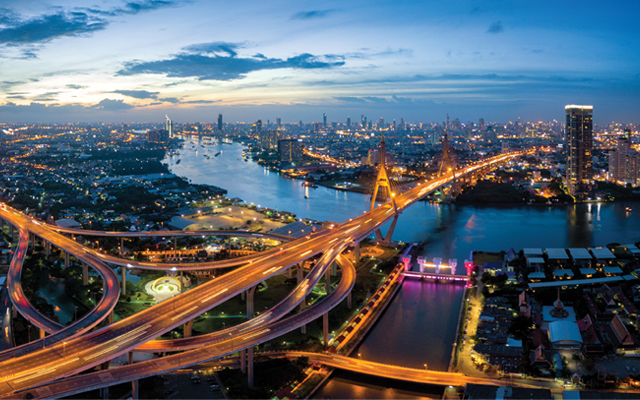The coronavirus pandemic is rewriting the playbook for Bangkok’s luxury hotels, with a greater focus on wellness, localism and curated touchpoints emerging as key themes in the post-pandemic future of travel.
“The word luxury is out; we’ve reached the age where it’s very unfashionable to be pretentious.” These words, uttered by Leanne Reddie Hucker, director of sales & marketing, Rosewood Bangkok, at the Thailand Tourism Forum in Bangkok on January 20, days before Wuhan shut itself down in a bid to contain the coronavirus, have taken on new meaning in the pandemic’s wake as the crisis has upended the luxury travel industry, and spurred greater demand for more targeted and personalised services.
“There is no question we have entered a new era of defining the traveller. The one-size-fits-all approach is not going to work anymore,” Hucker added. “Memory creation, personalised experiences are in. The key to the heart of a new luxury consumer is personal relevance.”

Little did she know how much weight her words, spoken before a thousand hoteliers and travel industry professionals in a ballroom at the Intercontinental Bangkok, would carry in the following months, as no one could have predicted how the burgeoning Covid-19 crisis would instantly transform how the world defines luxury.
But the crisis offers hotels themselves a luxury – the luxury of time to rethink themselves and refine essences and brand messages, said Laurel Tuohy, deputy content director at Bangkok-based hospitality brand consultation agency QUO.
“Although it’s a scary and uncertain time, I think that, looked at with a certain optimism, high-end hotels and brands can use this down time well. It’s the perfect chance for brands to reassess who they are, how they’ve changed and what differentiates them from the rest,” she stated.
QUO is hosting a series of podcasts titled the Future of Travel, in which themes of simplicity, radical localism and less crowding have emerged, with the new luxury defined by authentic local experiences, integration of technology and wellbeing as core components of a hotel’s offer.
These are themes that many of Bangkok’s luxury hotels are focusing on as they prepare to relaunch. As part of its efforts in stepping up sanitation to tackle the new normal, Rosewood Bangkok’s Hucker said the hotel “will heighten existing health and safety techniques, policies, and procedures”.
Elsewhere, at the opulent 285-room Sindhorn Kempinski Hotel Bangkok, whose scheduled May opening has been pushed to 3Q2020, Aaishah Bohari, director of sales and marketing told TTG Asia: “The pandemic has changed the world’s views and expectations of travel which directly impacts the choices people will make when they can travel again.”
Speaking of the hotel’s 4,000m² of wellness facilities and carefully designed health-centric programmes, she added: “At our hotel, well-being is at the heart of every guest experience. Sindhorn Kempinski Hotel Bangkok is designed in every sense with comfort and well-being in mind. Health or wellness has taken centre stage and this allows us to enter an already crowded market with a point of differentiation that is relevant and important – more so now – to discerning travellers.”
“We are now planning a series of campaigns leading to our opening later this year, from beautiful performances specific to various service touchpoints that are unique to the Kempinski DNA to inclusive dining experiences where every culinary ethos is embraced.”
Localisation is a strong theme at another long-awaited luxury opening: Capella Bangkok, situated in cultural hotspot Charoenkrung overlooking the Chao Phraya river. It is now slated for an end-of-year opening due to the coronavirus crisis. “By promising ‘Crafted Moments, Steeped in Tradition’, our new-age urban resort maintains a great connection with the local community,” said John Blanco, its general manager, of the hotel’s plans to draw luxury travellers.
“The hotel’s Capella Culturist team will assist to craft original and inspiring experiences around the neighbourhood’s highlights for food, wellness and culture, allowing guests to discover their inner selves with energising alfresco activities during their stay.”
Other luxury properties are making use of the downtime to upskill their staff. At the Hotel Villa De Pranakorn – Sam Yod district’s first five-star boutique hotel which opened in February – for instance, kitchen staff have been undergoing cooking courses, while accountants are brushing up their computer software skills.
“As we are a new hotel, this break gives us time for staff training and making sure we have more knowledge and experience, so we will be ready when we are back in business,” shared Erik Lannge, general manager of the luxury heritage hotel.
At the Grand Hyatt Erawan Bangkok, one of the city’s most established luxury fortresses, a special taskforce has been set up to reimagine the new normal after Covid-19, and adapt its services and products to meet evolving guest needs.
“This (crisis) is going to require us to rethink and redesign the way we operate and accelerate the green and sustainable transformations initiated in the past,” said its general manager Edouard Demptos.
“Additional precautionary measures such as social distancing capacity in event venues and restaurants are being developed so that guests are assured that it’s safe to meet and stay at Grand Hyatt Erawan Bangkok. To communicate all our efforts, we are preparing a holistic marketing communications plan that is digitally-driven and customer-centric.”




















